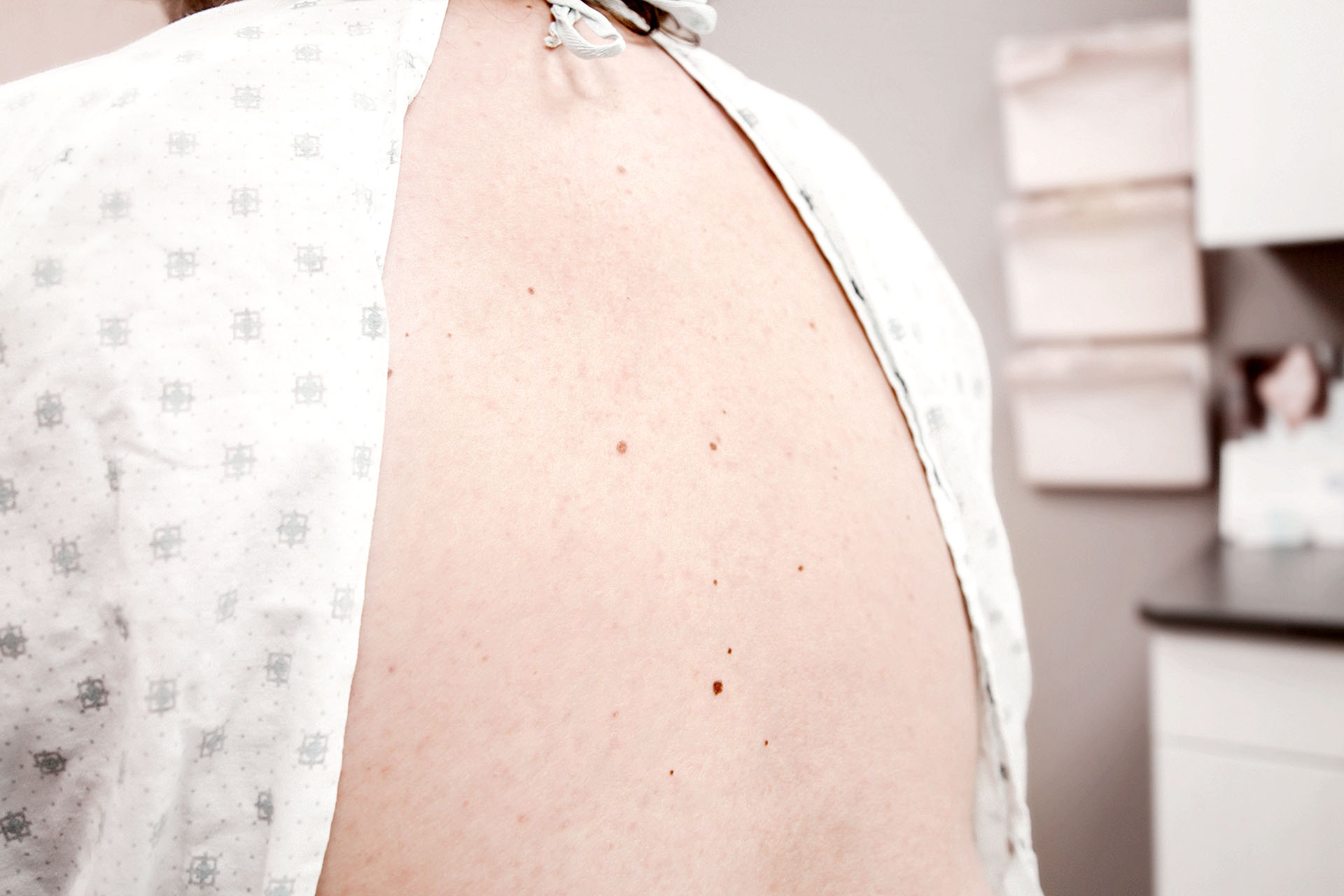Benign Skin Growth Removal
As you age, you might notice more spots and bumps appearing on your skin’s surface, including moles, freckles, skin tags, and liver spots. While these benign skin growths can be indicative of more serious health problems, such as diabetes and an increased risk of skin cancer, they are typically harmless. With that said, some may choose to have them removed for aesthetic reasons.
Dr. Ortleb’s patients frequently request removal of skin growths that tend to develop as we age. Below are some of the common benign growths that can be removed with a variety of treatment modalities. Call to schedule your appointment today to discuss removal of your unwanted spots!

Common Benign Growths and Removal Treatments
The following are common benign growths that we can remove using various procedures:
Seborrheic Keratosis is a harmless growth that can range in color from white to black, though most appear to be a shade of brown. They’re often found on the chest, back, head, or neck, but can appear anywhere except for palms or the soles of your feet. They are usually scaly and have an irregular shape, though they can also be smooth and wax-like. Treatment may be performed if it becomes irritated easily, looks like skin cancer, gets caught on clothing or accessories, or creates a cosmetic concern for the patient.
Also known as sun spots, liver spots, or age spots, solar lentigines are patches of darkened skin that are the result of UV radiation exposure. They are usually flat, can range from light tan to dark brown or black, can be ovular or irregular in shape, and can feel slightly scaly. There are several treatment options for solar lentigines, including creams, laser therapy, or cryotherapy. Your dermatologist can help you choose the best treatment option for your skin goals and assess the growth to ensure it doesn’t present any health concerns.
Cherry angiomas, sometimes called red moles, are small red bumps that typically increase in number with age. In fact, it’s extremely rare for a person to not have developed a few by the time they are in their thirties. These red bumps typically appear on the back, stomach, arms, and legs—rarely on the face, feet, or hands. Cherry angiomas are not a serious medical concern, though there are cosmetic procedures that can be done to remove them, such as laser therapy or desiccation.
Skin tags are small, soft skin growths often connected to the skin by a thin stalk. Skin tags themselves are harmless, but they can be a symptom of more serious medical conditions such as diabetes. While skin tags are not painful and may eventually fall off on their own, skin tag removal is a common cosmetic procedure. Your dermatologist may recommend cryotherapy, ligation, or surgical removal of the tag depending on their location and size.
Sebaceous hyperplasia is a common skin condition occurring in adults. These benign growths typically appear on the face and are the result of enlarged sebaceous (oil) glands. These bumps are usually small and can appear yellow or skin-colored. If sebaceous hyperplasia creates a cosmetic concern, they can be treated with several methods, including cryosurgery, laser treatment, or oral medication. If you’re interested in sebaceous hyperplasia treatment, your dermatologist can help you find the best method for you.
Moles are very common and typically appear during childhood or adolescence. As a child, your moles might grow and change color. As an adult, however, changes in moles and the appearance of new moles may be a sign of melanoma. Growing, itching, bleeding, multi-colored, and irregularly-shaped moles should be examined by your dermatologist for cancerous cells and may be removed if they are suspicious. Moles may also be removed if they are bothersome or unattractive to the patient. Mole removal is typically done in one to two office visits.
Skin Tag and Mole Removal in Omaha
Want to talk to a dermatologist about your options for skin tag, mole, or other skin growth removal? Call today to schedule an appointment at MOD dermatology: 402-505-8777
Benign Skin Growth Removal FAQ
Benign skin growths, sometimes called benign skin tumors, are noncancerous spots or bumps that appear on the skin as we age and are typically a result of sun exposure. Unlike malignant, or cancerous, tumors, benign growths don’t invade surrounding tissue and spread throughout the body. Both premalignant and malignant growths require medical attention and removal, whereas benign growths rarely require removal, though some people choose to do so for aesthetic purposes.
It can be difficult to tell the difference between benign, premalignant, and malignant growths without examination from a board certified dermatologist. In fact, some growths require a biopsy to rule out malignancy. If you notice an unusual skin growth, it’s a good idea to get it checked out by your dermatologist before dismissing it. If you find that your skin growth is benign and you would still like to have it removed, you may speak to your doctor about your options.
There are many sources on the internet that offer advice for removing skin growths, such as moles and skin tags, using DIY methods. These methods may involve removing the growth by cutting it off with a sharp object or by burning it using apple cider vinegar. However, many at-home remedies can lead to serious health and cosmetic consequences, such as heavy bleeding, infections, and scarring. Never attempt to remove skin growths on your own without first speaking to your dermatologist.




